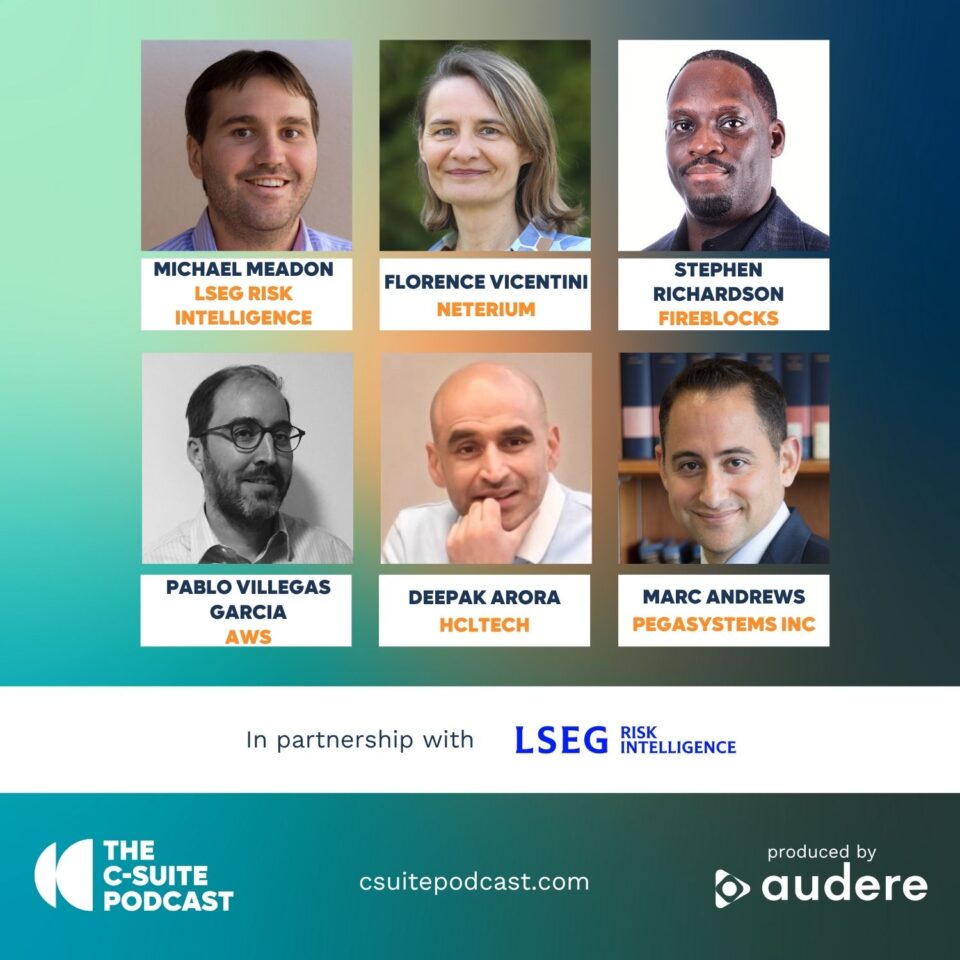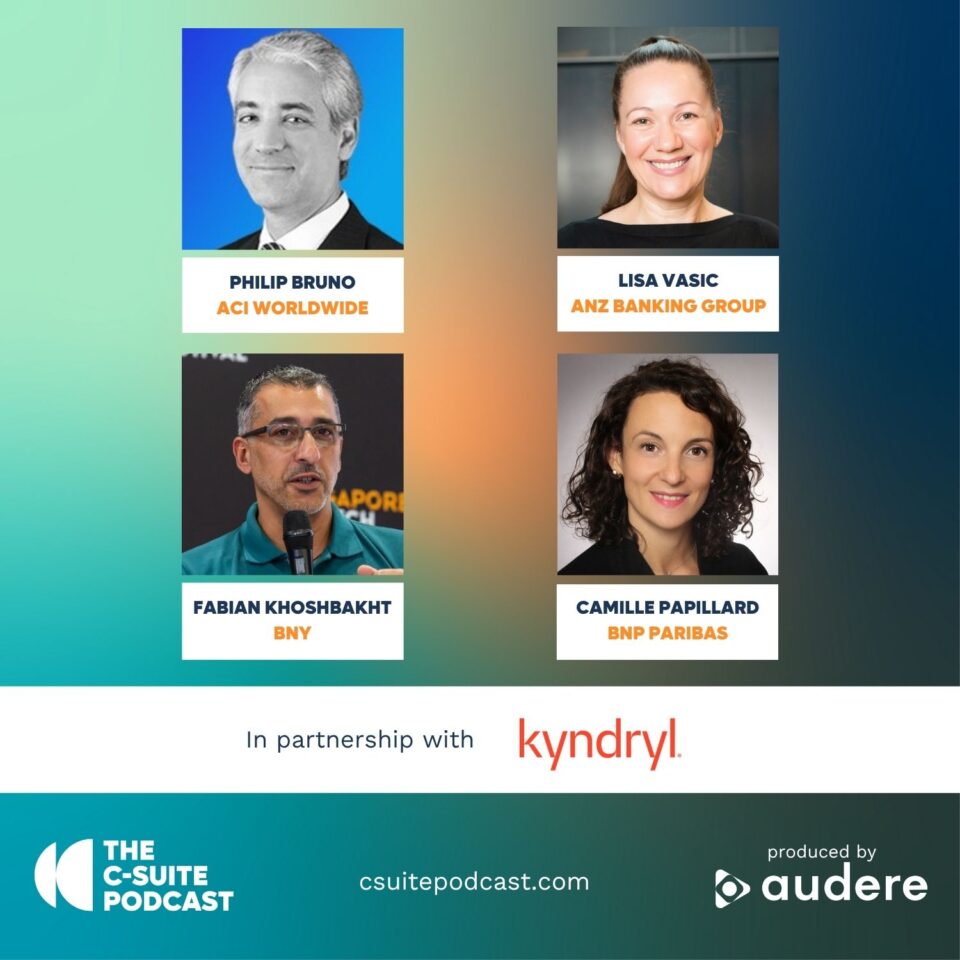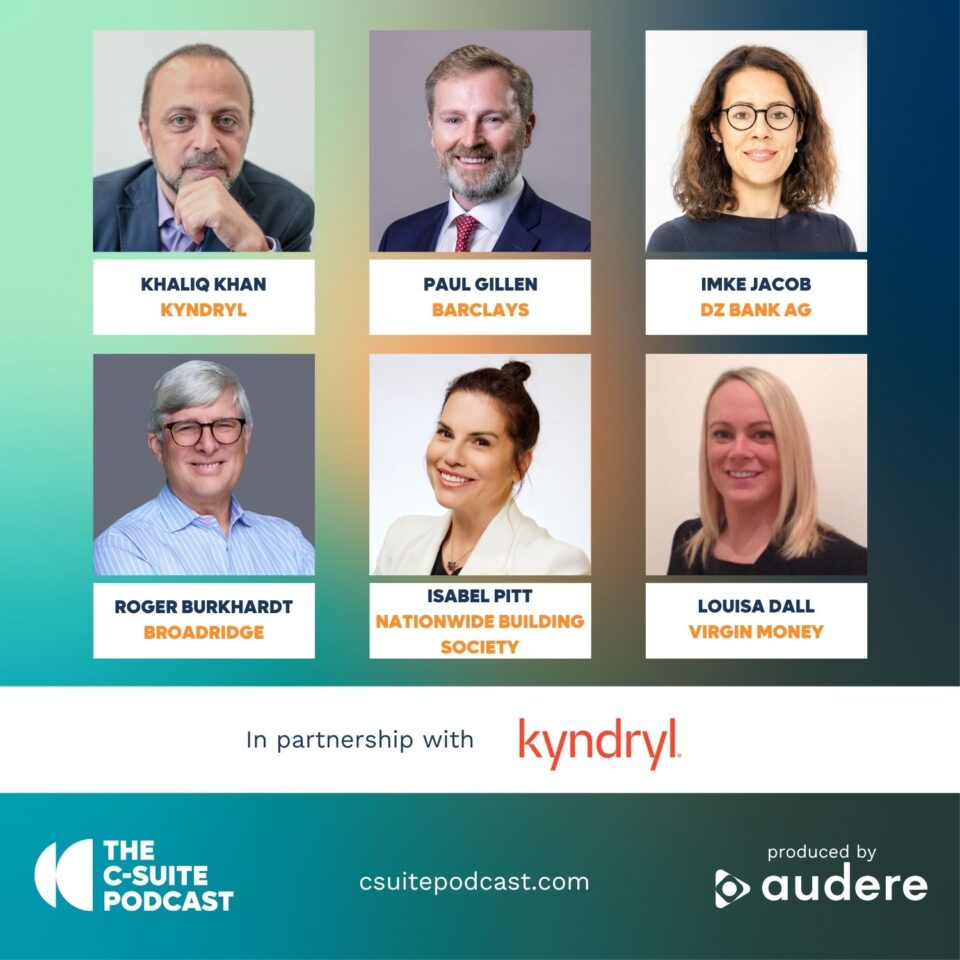Allison Shonerd, Head of Global Clearing at Bank of America

Allison Shonerd, Bank of America
Allison reflects on the significant progress the payments industry has made in recent years, particularly in payment preparation. Straight-through processing (STP) rates have surged from 80–85% to upwards of 98–99%, thanks to the application of machine learning, business rules, and better data logic.
She emphasises that in today’s environment, payments are no longer just a transaction – they are an experience. Customers expect fast, seamless, low-friction processes, and a key part of achieving this lies in ensuring payments are properly prepared before execution.
Allison also discusses the global investment in ISO 20022 and how this structured message framework enables richer, more analysable payment data. This in turn allows AI to add further value, improving operational processes such as data cleaning, anomaly detection, and sanctions screening. For clients, AI presents opportunities for deeper insights, more accurate STP, and improvements in data quality.
Internally, Bank of America is also deploying AI to empower its workforce, enabling teams to synthesise increasing volumes of data and operate more efficiently.
Sunday Domingo, Managing Director, Global Head, CIB Digital Channel Solutions at Standard Chartered

Sunday Domingo, Standard Chartered
Sunday shares insights from his panel on “Efficiency and Data Monetisation Cases for ISO”, where he underscores the global importance of ISO 20022. He describes it as a transformational force for banking, enabling interoperability across markets and driving more efficient, transparent, and cost-effective payment flows aligned with the G20’s objectives.
For clients, ISO 20022’s rich and structured data offers tangible benefits: better reconciliation, improved cash flow visibility, and enhanced relationships with suppliers and customers. However, Sunday highlights the need for corporate clients to actively adopt and send structured data to realise these benefits fully.
AI is a key enabler in this transformation. With richer data, banks can use AI to gain deeper customer insights, strengthen fraud detection, and enhance service delivery. Standard Chartered is also investing in AI for internal use, having launched SC GPT, an in-house generative AI platform to boost employee productivity. The bank balances innovation with a strong focus on responsible AI, ensuring fairness, ethics, and data security remain central to its strategy.
Sunday also introduces his new six-part podcast series on ISO 20022, aimed at demystifying the topic and exploring its real-world applications. Available on Apple Podcasts, Spotify, and YouTube, the series features expert discussions on ISO migration, challenges, and innovation opportunities.
Susan Yang, General Manager, High Value and International Payments at Commonwealth Bank of Australia (CBA)

Susan Yang, Commonwealth Bank of Australia
Susan shares her insights from a Swift standards panel session titled “The Key to Unlocking ISO 20022: Realising its Full Potential”, where she joined other banks to explore how institutions at different stages are managing their ISO 20022 journey.
CBA used the transition as an opportunity for holistic transformation: migrating systems to the cloud, enhancing digital channels, and introducing more structured data. The bank went live with 100% ISO compliance for outbound domestic payments in September 2024 and has already seen an increase in STP rates from 98.5% to 99.9%.
Susan stresses the importance of global consistency in adoption and usage guidelines. While the upcoming CBPR+ deadline in November 2025 will mark significant progress, she notes that many payment systems globally still vary in their adoption of ISO, creating friction in cross-border payments.
On the AI front, Susan sees broad potential across the entire payments value chain – from fraud detection and sanctions screening to payment repairs and case management. ISO and AI, she says, are mutually reinforcing better structured data enabling AI to operate more effectively, ultimately delivering more accurate and efficient outcomes.
Elizabeth Leather, Policy Manager at The Bank of England

Elizabeth Leather, Bank of England
Liz starts by explaining what a hybrid address is and why it matters. Traditionally, addresses were sent in an unstructured format, making it difficult to extract meaningful data. ISO 20022 now introduces structured messaging, and hybrid addresses serve as a bridge between the two approaches. They allow for partial structure, requiring key fields like town and country to be entered in a defined format, while keeping some free-text elements.
This change is important for financial institutions looking to improve data quality for purposes such as sanctions screening and AML. However, implementing hybrid addresses is not straightforward. Many organisations store data in outdated or inconsistent formats, and customers don’t always provide complete address details. Liz outlines how these challenges affect the entire data chain and increase the complexity of compliance.
She also highlights two critical dates: 25 November 2025, when hybrid addresses are enabled, and 26 November 2026, when unstructured addresses are phased out entirely. After this “cliff edge,” payments without structured data could fail, disrupting processing and breaching regulatory expectations.
Looking ahead, Liz discusses how ISO 20022’s structured data could enable AI to play a much larger role in areas such as fraud prevention and payment repair. She outlines future possibilities where AI agents may automatically collect, convert or validate address data, improving speed and accuracy across the system.
With growing regulatory pressure and operational risks, Liz makes it clear that readiness is no longer optional, it’s a decision institutions must act on now.
Jalil Sael Sotomayor, Chief Operations Officer at Pacifico Seguros

Jalil Sael Sotomayor, Pacifico Seguros
Joining the podcast from Sibos in Frankfurt, Jalil Sael Sotomayor, COO at Pacifico Seguros, shares how the Peruvian insurer is embracing digital transformation to improve customer engagement and operational efficiency.
Pacifico Seguros is one of Peru’s leading insurance providers, offering health, life and general insurance products. Although Sibos is largely focused on banking, Jalil explains why it’s highly relevant for insurers too. With conversations around data, inclusion, and digital journeys, he highlights the value of learning from global peers in other sectors.
Education is a key focus for the company. Jalil describes how Pacifico is helping customers understand the value of insurance and how to navigate claims processes. Through its customer app and public-facing campaigns, the company is promoting insurance literacy across the population.
Technology is also transforming how they operate. Internally, Pacifico is using AI-powered co-pilots to boost productivity in software development and risk management, with 100% of employees now using these tools. Externally, AI is already improving the claims experience for customers. For simple products, the use of AI has reduced processing time by 70% and significantly improved customer satisfaction.
Looking to the future, Jalil sees AI not just as a tool but as a true partner in service delivery. He stresses the importance of educating both customers and staff in the use of new technologies, as part of Pacifico’s ambition to make Peru the best-protected country in the region by 2030.









